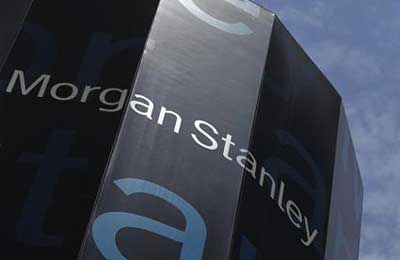
Morgan Stanley commodities talks with Qatar hit snag
Dubai, October 4, 2012
Morgan Stanley's talks with Qatar's sovereign wealth fund over the sale of its commodities business have run into difficulty, and the deal may need to be reworked if it is to go ahead, banking sources said.
One of the top banks in commodity trading over the past 30 years, Morgan Stanley has been in discussion for more than a year with Qatar over the sale of at least a majority stake in the energy-focused trading business, the bankers said.
"There have been some differences, and Qatar is a bit lukewarm about it," one said. "It's not dead yet but definitely not imminent."
He said the hitch was not about price but about the structure of the deal, which would see the divested unit run by the existing commodities team at Morgan.
Bankers said the parties had looked at two deals - the sale of a majority stake, at least 75 percent, or the sale of the whole unit, with commodities managers at Morgan Stanley taking a 20 percent stake funded by private equity.
A Morgan Stanley spokesman declined to comment.
Selling the capital-intensive commodities business would raise much-needed funds for Morgan, and allow the divested unit to maintain ownership of physical assets in the United States and resume proprietary trading.
Qatar Holding, the investment arm of the Gulf state's sovereign wealth fund Qatar Investment Authority, has led most of Qatar's foreign acquisitions but has focused on minority holdings including stakes in Barclays, Credit Suisse, Volkswagen and Porsche. It has full ownership of retailer Harrods.
The fund is seen as a bull on commodities, with a senior executive saying in a rare statement in April that "We like commodities, we like to invest in commodities. Since 2002, the commodity price trend keeps going up."
Qatar Holding also emerged as kingmaker in Glencore's planned acquisition of Xstrata, amassing a 12-percent stake through market purchases and forcing Glencore to raise its offer at the eleventh-hour.
Along with arch-rival Goldman Sachs, Morgan Stanley was one of the original "Wall Street refiners" that blazed a trail in the energy derivatives markets in the 1980s by combining physical assets with derivatives trading nous and access to capital.
Morgan Stanley, Goldman and JP Morgan are awaiting a verdict from the Federal Reserve on whether they can keep those physical assets. The status of assets including Morgan Stanley's Denver-based TransMontaigne refined products supplier has been in question since investment banks became regulated by the Fed as bank holding companies in the 2008 financial crisis.
While its rivals have shifted their commodities focus to client hedging and index business, Morgan has maintained a strong presence in storing and transporting fuels, making it more vulnerable to the Fed ruling.
"The sweet spot for Morgan Stanley is in the space between physical markets and derivatives, connecting the two," said a London banker.
He said the bank may have decided that unless the Federal Reserve granted the right to both maintain existing physical assets and acquire new ones it should exit the business.
If the bank wants to maintain a minority stake in commodities and avoid Fed regulation it would need to sell at least 75 percent, bankers said.
From an estimated peak of $3 billion in 2008, Morgan Stanley's commodities trading revenues have dropped sharply, partly because of the Volcker rule that bans banks from proprietary trading and partly because of capital constraints.
Morgan Stanley's commodities unit is run by Colin Bryce in London and Simon Greenshields in New York. – Reuters







